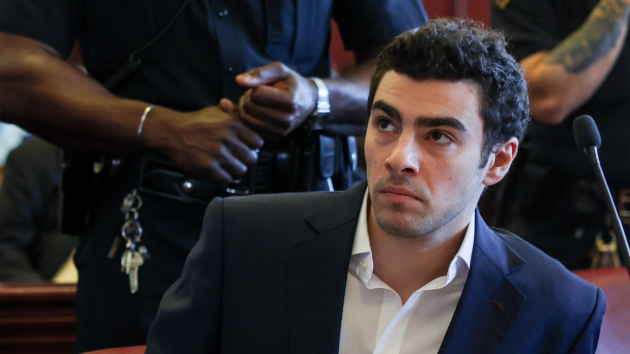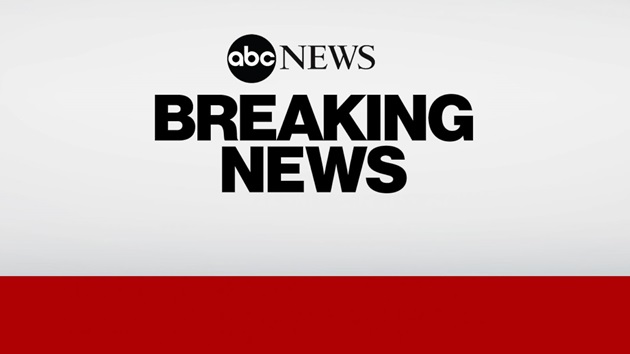Students protest DEI firings at the University of Florida
Written by ABC Audio ALL RIGHTS RESERVED on March 8, 2024

(GAINESVILLE, Fla.) — University of Florida students protested outside of the Board of Trustees meeting Friday over the university’s decision to eliminate all of its diversity, equity, and inclusion (DEI) positions.
Student groups across campus joined together for an open letter denouncing the firings, particularly the firing of the university’s chief diversity officer, Marsha McGriff.
“As students, we have watched Dr. Marsha McGriff champion a campus where all students, no matter their background, may be enabled to embody our guiding values and fulfill our mission to lead and influence the next generation and beyond for economic cultural and societal benefit,” the statement read.
The letter was signed by the presidents of the college’s Hispanic Student Union, Black Student Union, Women’s Student Association, Asian American Student Union, Jewish Student Union, Pride Student Union, and the Florida Cicerones.
“In these moments, those who fail to understand the benefits of Diversity, Equity and Inclusion and the Office of the Chief Diversity Officer find themselves on the wrong side of history,” the letter continued.
An administrative memo released on March 2 announced the firings, citing a recent state ban on the use of public funds for diversity, equity and inclusion programs, activities and policies — as well as activities for “political or social activism” — in the public college system.
“As we educate students by thoughtfully engaging a wide range of ideas and views, we will continue to foster a community of trust and respect for every member of the Gator Nation,” the memo said.
The University of Florida and its Board of Trustees did not immediately respond to ABC News’ requests for comment.
Student government leaders also criticized the firings, saying DEI helped foster “a more supportive and inclusive environment for students.”
“This decision will bring about many abhorrent changes, however, our community must come together to push forward growth, resilience and a reinvigorated commitment to the principles of diversity, equity and inclusion,” the group’s statement read. “In the face of these changes, we, as an all-women minority-led ticket, are more determined than ever to raise the voices of underrepresented groups and champion initiatives through the student government that celebrate diversity in all its forms.”
The Florida Board of Governors defines DEI as “any program, campus activity, or policy that classifies individuals on the basis of race, color, sex, national origin, gender identity, or sexual orientation and promotes differential or preferential treatment of individuals on the basis of such classification.”
DEI, as defined by DEI professionals, are programs or initiatives aimed at correcting inequities within an organization — this could include implementing accessibility measures for people with disabilities, correcting discriminatory hiring practices, addressing gender and racial pay inequities, anti-bias training, and more.
The Florida Board of Governors and the Board of Education passed restrictions on DEI in January, almost a year after Florida Gov. Ron DeSantis signed Senate Bill 266, prohibiting universities from expending state or federal funds to promote, support, or maintain any programs or activities relating to DEI or social and political activism.
DeSantis applauded the decision, saying on X: “DEI is toxic and has no place in our public universities. I’m glad that Florida was the first state to eliminate DEI and I hope more states follow suit.”
These efforts by the governor and state school officials follow legal blows to DeSantis’ past efforts to block race-related curriculum and trainings in K-12 schools, higher education and in the workplace via the “Stop WOKE” Act. Judges have blocked these restrictions from taking effect in all but K-12 schools, with one judge arguing that the First Amendment protects speech in the classroom and that the law’s vague restrictions are unenforceable.
Conservatives across the country have recently set their sights on removing diversity programs from educational institutions.
The U.S. House Education and Workforce Committee, chaired by Rep. Burgess Owens, R-Ohio, held a nearly two-hour hearing on DEI on Thursday.
Owens called “a long-growing cancer that resides at the heart of American academic institutions.”
Several of Owens’ colleagues condemned the criticism of DEI, claiming they were “villainizing” an entire concept to “advance a political narrative,” Rep. Suzanne Bonamici, D-Ore., said.
Rep. Lucy McBath, D-Ga., condemned her Republican colleagues, asserting that they “can’t have it both ways.”
“You can’t claim to be protecting free speech and diversity of thought, while simultaneously trying to deny our history, which is the history of America,” McBath said.
ABC News’ Ayesha Ali and Audrey Mostek contributed to this report.
Copyright © 2024, ABC Audio. All rights reserved.
 KVSP
KVSP 




